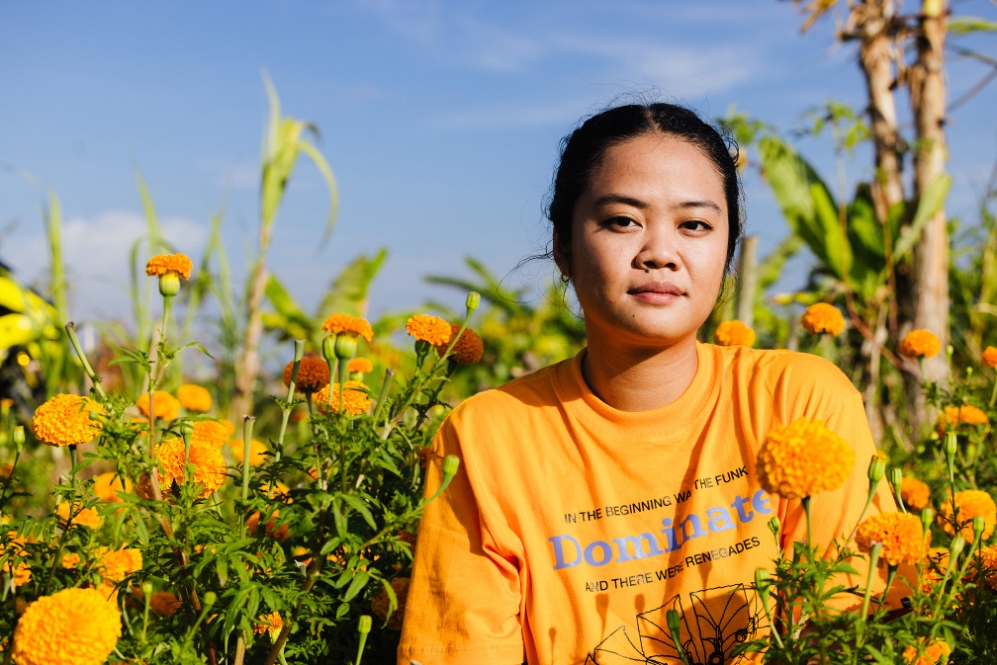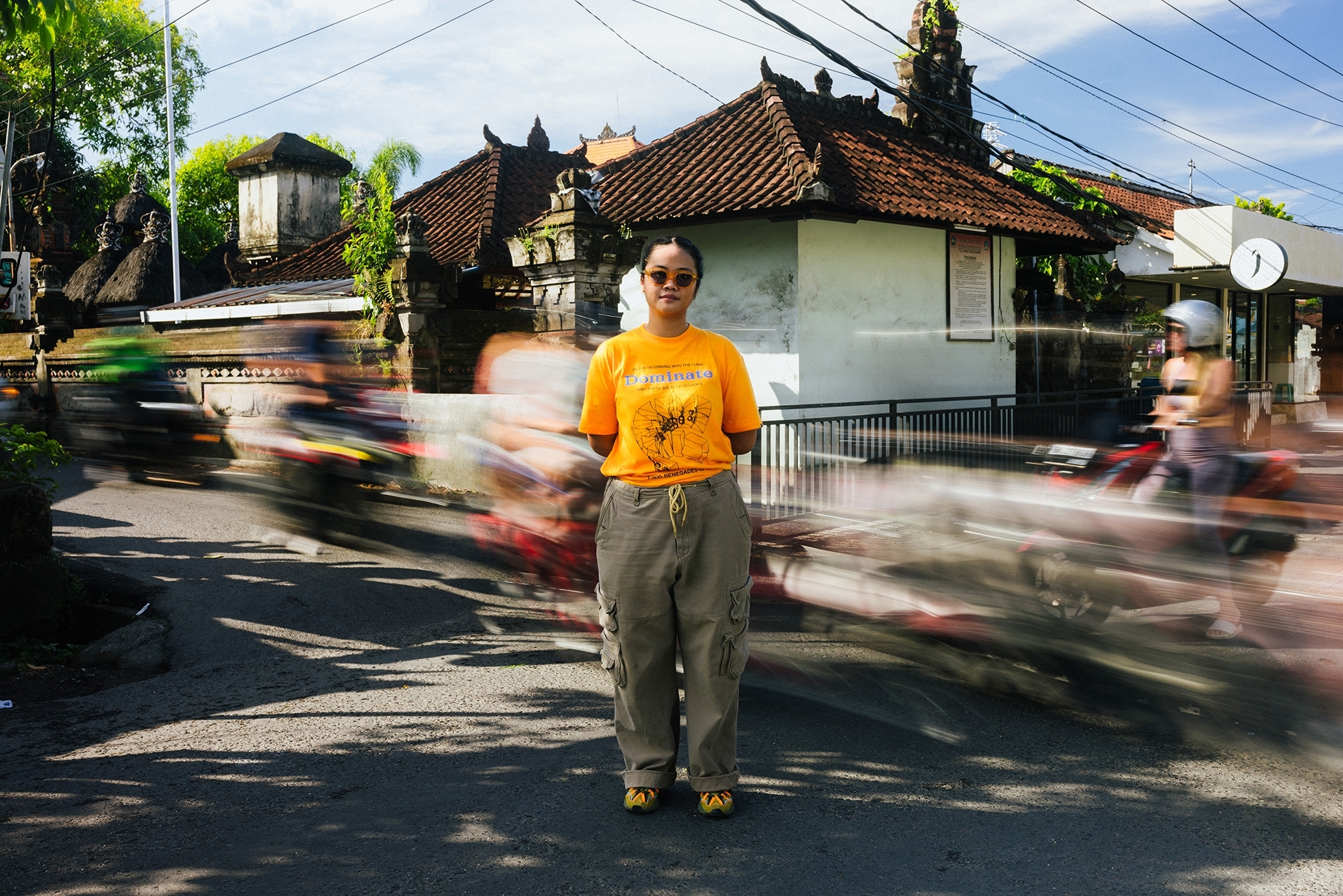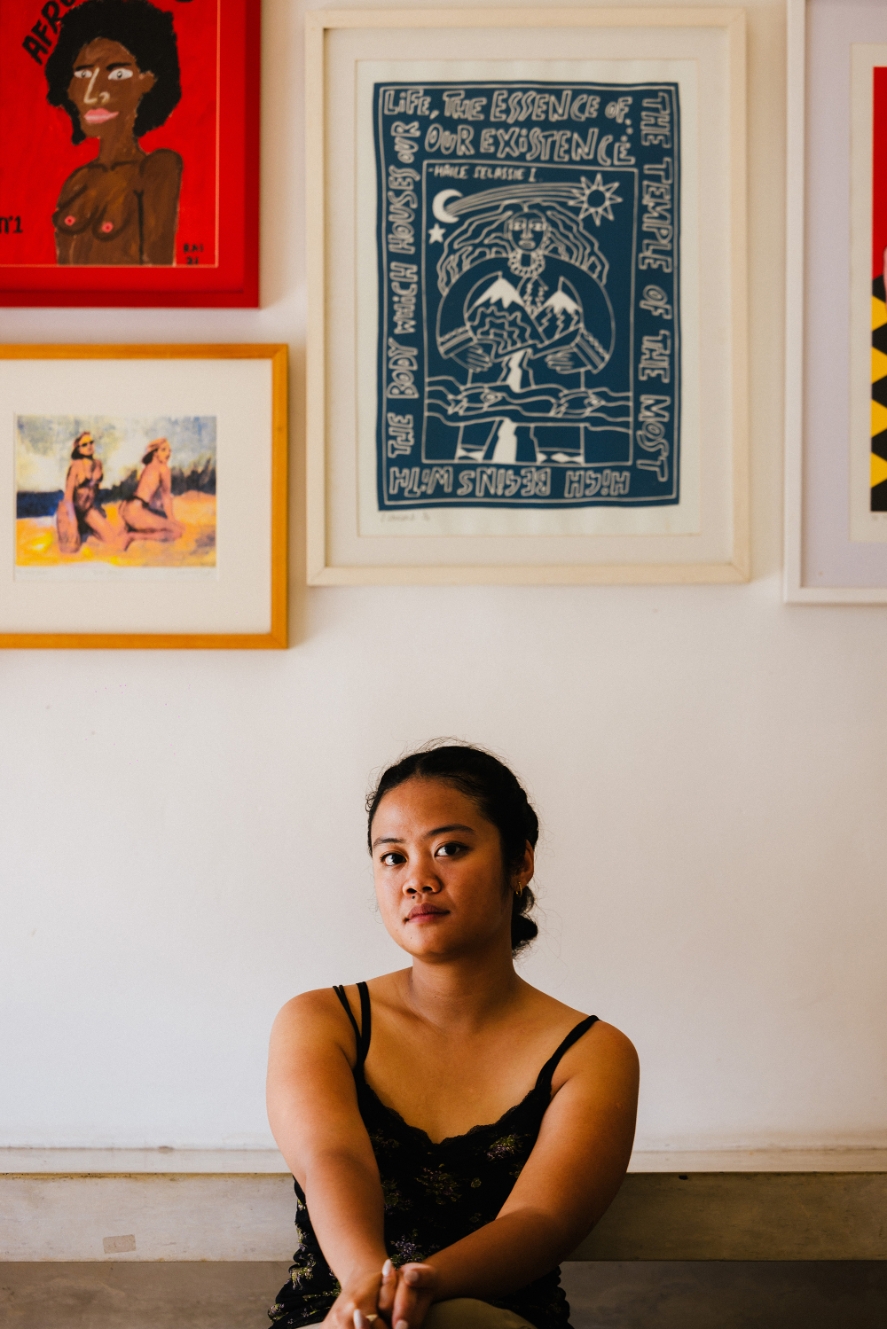 Interviews
Interviews
Bali beyond Instagram: Dita is uplifting a new generation of DJs in Indonesia
The Potato Head and Klymax resident champions local culture on an island hooked on headliners
Here’s the thing about Bali: the island gets a lot of attention for attracting big-name talent to play at all the shiny clubs that line the coast, famed for the rhythmic crashing of music and waves at once. Tourists come en masse and talk about how great the “music scene is in Bali” on Instagram with Nina Kraviz DJing in the background of their pictures.
But for those less transient—the ones that call the island home, make friends with the locals and discover cutty venues down less travelled lanes—they’ll tell you that Bali’s real music scene is propelled by a stealth group of young, homegrown talent with a hugely impressive armoury of music that dates back decades to Indonesia’s feverish obsession with disco, boogie and funk. That potent love affair carried over from parents to their children, churning out a new generation of DJs and producers who are melding it with modern electronic music for a dance floor sound that is uniquely Indonesian. At the centre of it all? Dita.

Dita Putri Widyanti was born in India before journeying back to her family’s native Indonesia. She spent much of her youth in Jakarta before landing in Bali a decade ago, and this third-culture upbringing contributes to the colourful mosaic of cultural influences now heard in her DJ sets. Weaving the spirit of her native homes between beats, her highly nuanced sound distinguishes her from what the Western imports bring and has her bouncing between dance floors—one day she’s doing Balearic in Bali, the next it’s disco in Jakarta and the day after that it's breaks in Bangkok. And then she gets on a flight to Australia…
First a resident at Potato Head Beach Club, Dita was hand-picked by DJ Harvey last year to lead the local roster at the beach club’s newly minted subterranean nightclub, Klymax Discotheque. Top-billed alongside headliners that the Harvey-curated club recruits from all over the world, Dita is unwavering in her commitment to uplifting Indonesia. Unfettered by convention of any kind, Dita performs with an unapologetic authenticity that reverberates deeply across her dance floor, playing by her own rules and shifting the narrative around what Bali’s music scene really sounds like.
We caught up with Dita in a rice paddy, followed her through Bali’s chaotic traffic and ended up in a humble local haunt called Warung Maaak run by her DJ counterpart Gero. If you’re in Bali, stop by for what is arguably the best Nasi Campur on the island and bring this interview with you for dessert.
What’s the best thing about living in Bali?
The nature.
I like going up north around Bedugul, where you can find scenic mountains and lakes—a perfect escape for when it gets a bit too sunny. Down south, in the Bukit Peninsula, I also found some stunning beach views from the top of the cliff, perfect for when you want to pop a cold one open.
Take us out on a night out — from drinks to dinner to party to afterparty!
Start with a couple of sunset beers at Kuta Beach, a curated dinner at FED by Made, pre-drinks at Potato Head Beach Club and then an after-party at Klymax Discotheque.

And the worst part about living in Bali?
At the moment, definitely traffic.
So you were born and raised in India. What role does India play in shaping the artist you are today?
Yes! Each place I've lived in has taught me the importance of musical roots from the respective modern era that has passed. But India really sparked my interest in different kinds of percussions, which has shaped me musically.
The one thing you miss most about New Delhi?
One would be way too little, but to name a few: the food, the culture, the colors, the chaos and the city's inevitable intensity. All in all, "miss" would be an understatement.
How did the move to Jakarta further develop your artistry?
The convergence of Jakarta and New Delhi's pace highlighted the similarity for me in a really good way, but maybe the difference between being an ethnic minority in India and now being back with my people gave me a sense of confidence.
Moving to Jakarta enabled me to understand various scenes, explore gigs and crucially, be true to my sound when I dig. Feel-good music is the mantra that I've kept to myself throughout this journey, and the seeds I sowed when I lived in Jakarta have now blossomed in Bali.
Tell us about the now in your life. Everyone talks about that Bali magic; what does that mean to you?
Life's been insanely turbulent—it’s definitely been a journey of mixed emotions towards my career. From being at my peak last year when I was able to tour all of Australia, Indonesia and Thailand, to losing someone very important in my life, these contrasting experiences revealed an essential Balinese value to me: the value of Duality.
I learnt that there will always be contrast, and accepting its coexistence helped me understand that there is a middle ground where you can find balance if you seek for it. This lesson is my "Bali magic".
Every DJ can remember the moment that, like a lover, electronic music changed their life. What was that moment for you?
In 2015, I was at a Push Pull club night at Maja House in Bandung when Bayu blew my mind and changed my perspective of electronic music.
“In Indonesia, we love mixing different flavours, like Gado-Gado, and that influence can be found in my sets.”
Generally speaking, much of Asia wasn’t influenced by subcultures as heavily as the West—but Indonesia is a little different. Where did you pick up your breadth of knowledge in music?
Contrary to public opinion, I think people will be surprised to learn how many subcultures exist within Indonesia. We're a country of over 17,000 islands, and subcultures from each region, province, locality, district, you name it, express their own unique interpretations of what they consider as their sound. In Indonesia, we love mixing different flavours, like Gado-Gado, and that influence can be found in my sets.
Who inspires you?
My parents and younger brother have impacted me in different ways. Resilience, commitment, and working to get what you deserve are a few valuable things I've learnt from my family.
Often misunderstood and eclipsed by big beach clubs with expensive headliners, how would you describe Bali’s cultural identity when it comes to music?
Festive, celebratory yet ominous—I find it beautifully intriguing.

A new wave of young talent is sweeping through and shaping the island’s music scene—and you’re at the forefront of it all. Tell us about this current generation of music culture on the island. What are the kids all about?
I just try to have a good time when I play, and honestly, I feel that I was on the same boat as many people when we rose the ranks throughout the years who deserve the same credit such as Gero, Raissa and Tyara from Orbitware, Seabass from BDRecs and Danny from Tantrà to name a few. Doing what they do in their own scenes, I feel like they've exemplified similar love, passion and curiosity and that has driven the music culture on the island.
The pandemic was a wild ride for us all in the industry. How did it impact you? I’m less curious about your career and more interested in how it impacted your thinking and talent as a DJ? What did you do with the time you were given?
As much as I wish it had been inspirational, it was actually harsh. I quit my job and moved to Bali to become a full-time DJ but soon after that time coincided with the pandemic. I realized how financially vulnerable I was at that time, my career depended on people being able to gather and it obviously wasn't possible during the pandemic. I was forced to look for alternatives like cooking and working in retail, to the point where it made me feel as though I'd have to quit DJing out of necessity. Once venues reopened, I reconnected with the feelings of being a DJ and made me realize that it's irreplaceable. They say you value the true meaning of something when you lose it, and losing the opportunity to DJ during the pandemic made me ever grateful for what I do, and that reminder always motivates me to give it my best every time I get to play.
#GreenRoom: How do you see the relationship between music and the planet?
The planet has gone through so much over time. Of course, we can see the impacts of how we have progressed as human beings and unfortunately everything "modern" resonates elements of rapidity, ephemeral trends and a lack of sustainability.
Specifically for music and the planet, we also need to realize that cultural sustainability is also important for us to uphold. This is why I'm so grateful to my surroundings and Indonesia's eclecticism, which serve as a constant reminder to me that I can always include differing sounds in my music, and hopefully sustain the cultures of music to uphold our musical mark from different eras throughout time.
What’s one thing everyone gets wrong about you?
Inevitably people will always get a few things wrong about you, but I'm very much focused on my growth and I let my journey do the talking.

So Klymax is finally open...and you’re a resident. What’s special about the vaunted club and what sets the music programme apart from the rest of Bali?
Klymax is an incredible sonic experience built from the ground up in collaboration with DJ Harvey. From the raised DJ booth to the sprung dancefloor, every element is shaped to maximise the sound experience. The sound system is insane, and I love the no-smoking policy—it’s one of a kind, for sure.
I’m thrilled to be able to be a part of History along with my good friend Gero as residents, it’s a challenge but it definitely pushes us to strive to be better every week.
Tell us more about your Interrupted Collective. What’s the ethos and how is it special?
Interrupted Collective was founded by people from differing musical backgrounds, mainly from the rapidly developing underground scene in Jakarta during the pre-pandemic years. It's those very differences that enrich what the Collective has to offer, and what always keeps people coming for more. We've recently merged with Perky Club in Jakarta and Interrupted nights have never ceased to bring a sense of family and fun to the forefront. We’ve always been keen on sticking to sounds that we truly like and had good times with them. Everyone's super supportive of each other to further craft their own unique sounds and sincere fun has always driven us to keep pushing through.
What’s in the pipeline over the next couple of months?
I’ll be focusing a lot on my development here in Klymax this year, but there is heaps of fun stuff coming up, including an Asian Tour and a cheeky single towards the end of the year. Keep it locked in.
What are three tracks can you always play that never get old?
Elkie Brooks ‘Dreamdealer’
Cold Front ‘Beyond The Beat (Infinite Mix)’
Apogee & Perigee ‘Hope’
What’s the best piece of advice you’ve ever been given?
Be true to yourself and never be apologetic for who you are.
In five years, I will be…
Proud of my own craft.
Olivia Wycech is Mixmag Asia’s Culture Editor, follow her on Instagram.


